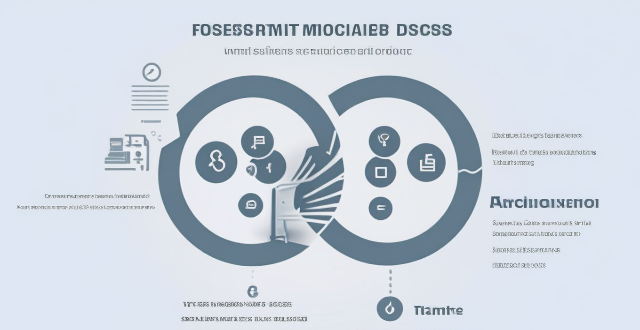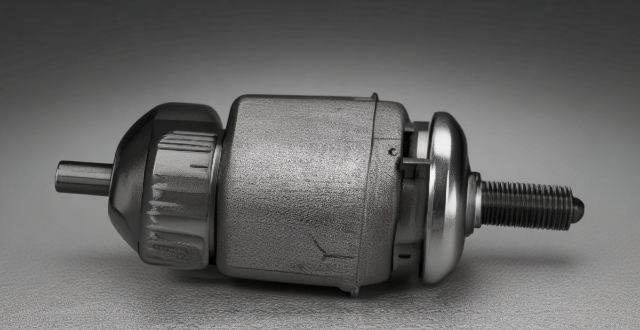Rate Repayment

How can I manage my student loan repayment after graduation ?
## Summary of Managing Student Loan Repayment After Graduation After graduation, managing student loan repayment can be a significant challenge. However, by following these steps, you can effectively manage your loans and avoid unnecessary fees or damage to your credit score: 1. **Understand Your Loan Terms**: Before starting any repayment plan, it's crucial to understand the terms of your student loans, including interest rates, monthly payments, and grace periods. 2. **Create a Budget**: A budget helps prioritize expenses and determine how much money can be allocated towards student loan repayment each month. Include all necessary expenses in your budget. 3. **Make Payments On Time**: Late payments can lead to fees and negatively impact your credit score. Set up automatic payments or make manual payments on time to avoid penalties. 4. **Consider Consolidation or Refinancing**: If you have multiple loans with different terms, consolidating them into one payment or refinancing at a lower rate may simplify repayment and save money. 5. **Explore Repayment Options**: Federal student loans offer various repayment plans, such as income-driven plans that adjust your payments based on your income and family size. Discuss the best plan with your loan servicer. 6. **Seek Help if Needed**: If struggling to make payments, don't hesitate to reach out for assistance. Many loan servicers offer forbearance or deferment options, and there are also government programs that can provide support for student loan repayment.

How do interest rates on student loans work ?
Interest rates on student loans are the percentage of the loan amount that borrowers must pay in addition to the principal balance. The interest rate is determined by the lender and can vary based on factors such as creditworthiness, type of loan, and repayment term. There are two main types of student loans: federal and private. Federal student loans have fixed interest rates that are set by Congress each year, while private student loans have variable or fixed interest rates that are determined by the lender. Interest on student loans begins to accrue as soon as the loan is disbursed, and there are several repayment options available for student loans. By choosing the right type of loan and repayment plan, you can minimize your interest costs and pay off your student loans more efficiently.

How do I manage debt effectively and pay it off quickly ?
Managing debt effectively and paying it off quickly requires a combination of discipline, strategy, and sometimes professional advice. Here are some steps you can take to get started: ### Assess Your Debt Situation - **Understand Your Debts**: List all your debts and identify high-interest debts. - **Determine Your Budget**: Calculate your monthly income and evaluate your expenses. ### Create a Debt Repayment Plan - **Choose a Repayment Method**: Avalanche or Snowball method. - **Make a Budget and Stick to It**: Allocate more funds to debt repayment and adjust as needed. - **Consider Refinancing Options**: Consolidate debts or negotiate with creditors. ### Implement Additional Strategies - **Increase Your Income**: Take on additional work or sell unwanted items. - **Reduce Your Expenses**: Cut out luxury spending and shop smarter. - **Improve Your Credit Score**: Pay on time and monitor your credit report. ### Seek Professional Advice if Needed - **Consult a Financial Advisor**: Personalized advice and debt management plans. - **Consider Debt Counseling**: Nonprofit credit counseling and beware of scams. Consistency and perseverance are key in paying off debt quickly.

What happens if I can't repay my student loans ?
Student loans are a common way for individuals to finance their education. However, what happens if you are unable to repay your student loans? This article will explore the consequences of not being able to repay your student loans and provide some suggestions on how to avoid these consequences. If you fail to make payments on your student loans, you will eventually default on your loans. This means that you have failed to make payments for a certain period of time, usually 270 days. Once you default on your loans, the following consequences may occur: - Damage to Your Credit Score: Your credit score will be negatively impacted, which can affect your ability to obtain credit in the future. - Wage Garnishment: The government or your lender may take legal action against you to garnish your wages, which means taking a portion of your paycheck to cover the debt. - Tax Refund Offset: The government may also take a portion of your tax refund to cover the debt. - Loss of Eligibility for Future Financial Aid: You may lose eligibility for future financial aid, including grants and scholarships. In addition to the above consequences, the government or your lender may take legal action against you to recover the debt. This can result in additional fees and court costs, as well as potential damage to your reputation and career prospects. Failing to repay your student loans can have a negative impact on your future opportunities, including difficulty renting an apartment, getting hired, or starting a business. To avoid the consequences of not repaying your student loans, consider the following suggestions: - Create a Budget: Create a budget that includes your monthly expenses and income, and prioritize paying off your student loans as soon as possible. - Explore Repayment Options: Talk to your lender about different repayment options that may be available to you, such as income-driven repayment plans or deferment/forbearance options. - Seek Professional Help: If you are struggling with repayment, seek professional help from a financial advisor or credit counselor who can provide guidance on managing your debt. - Stay in Touch with Your Lender: Keep in touch with your lender and communicate any changes in your financial situation that may affect your ability to repay your loans. - Consider Consolidation or Refinancing: If you have multiple loans with different interest rates and terms, consider consolidating or refinancing them into one loan with a lower interest rate and more manageable repayment terms.

Can you consolidate multiple student loans into one payment ?
Consolidating multiple student loans into one payment simplifies monthly expenses and can reduce overall interest rates. The process involves taking out a new loan to pay off existing ones, resulting in a single fixed interest rate and monthly payment. Benefits include lower monthly payments and easier management, but potential drawbacks such as longer repayment periods and loss of lender benefits should be considered. Successful consolidation requires evaluating current loans, comparing offers, and understanding all terms before committing.

What are some examples of successful climate debt repayment programs ?
Climate debt repayment programs aim to address the disproportionate impact of climate change on vulnerable communities and countries. Successful programs include the Green Climate Fund, Global Environment Facility, World Bank's Climate Investment Funds, and African Development Bank's Africa Adaptation Initiative. These programs provide financial support and resources for adaptation, mitigation, and sustainable development projects in developing countries. Key features include funding for biodiversity conservation, land degradation prevention, private sector involvement, and disaster risk reduction.

How do I calculate the conversion rate for different currencies ?
Calculating conversion rates for different currencies involves determining the current exchange rate, calculating the conversion rate, considering any fees or commissions, and using a conversion tool if needed. By following these steps, you can ensure that you are getting an accurate estimate of the amount of currency you will receive after the conversion.

What is the difference between a fixed-rate and adjustable-rate mortgage ?
The text discusses the differences between a fixed-rate and adjustable-rate mortgage. A fixed-rate mortgage has a constant interest rate throughout the loan term, offering stability and predictability in monthly payments. An adjustable-rate mortgage (ARM) has a fluctuating interest rate based on market conditions, with potential savings if rates decrease but also the risk of higher payments if rates increase. The choice between the two depends on personal financial situation, risk tolerance, and long-term goals.

How does age affect heart rate during exercise ?
Age affects heart rate during exercise by altering the structure and function of the aging heart, reducing maximum heart rate, shifting autonomic regulation towards sympathetic dominance, and decreasing cardiac reserve. Older individuals can still improve their cardiovascular fitness through regular exercise and lifestyle modifications.

Which extreme sport has the highest mortality rate ?
This article explores which extreme sport has the highest mortality rate. It discusses five extreme sports: parachuting, base jumping, free solo climbing, big wave surfing, and skydiving. Based on available data, base jumping appears to have the highest mortality rate among extreme sports, followed closely by free solo climbing. However, it is important to note that participating in any extreme sport requires proper training, equipment, and supervision to minimize the risks involved.

Can heart rate monitoring help prevent overexertion during exercise ?
Overexertion during exercise can lead to fatigue, muscle soreness, and injuries. Heart rate monitoring is a technique used to measure the number of times a person's heart beats per minute (bpm). By monitoring your heart rate, you can determine personalized training zones based on age, fitness level, and goals, providing real-time feedback on current heart rate during exercise. Recovery time is essential for preventing overexertion, and heart rate monitoring helps determine how long it takes for the body to return to its resting state. Best practices for heart rate monitoring include choosing the right device, calibrating regularly, warming up properly, staying hydrated, and listening to your body. Following these guidelines and listening to your body can help prevent overexertion during exercise while maximizing its benefits.

How accurate are fitness trackers in monitoring heart rate ?
The accuracy of fitness trackers in monitoring heart rate can be affected by various factors, including device quality, skin type and color, movement, and environmental factors. To improve the accuracy of your fitness tracker's heart rate monitor, it is recommended to choose a reputable brand with advanced sensors and algorithms, wear your device correctly, calibrate your device, and use multiple sensors or a chest strap for better results. By following these tips, you can make more informed decisions about your health and fitness goals.

Can I refinance my mortgage to get a lower interest rate ?
Refinancing a mortgage can lead to lower interest rates and monthly savings, but involves costs like closing fees. Eligibility depends on credit score, equity, and DTI ratio. Consider market conditions and break-even point before deciding. The process includes researching, applying, providing documentation, appraisal, underwriting, closing, and funding. Alternatives include recasting, loan modification, and government programs.

What is the success rate of in vitro fertilization (IVF) for women ?
In vitro fertilization (IVF) success rate for women depends on age, cause of infertility, and quality of eggs and sperm. Younger women with healthy eggs and sperm have higher chances of success, while older women or those with certain causes of infertility may face lower success rates. Other factors such as the number of embryos transferred, clinic experience, and use of assisted reproductive technologies can also impact the outcome. It is important to consult with a qualified fertility specialist to determine the best course of action for achieving pregnancy through IVF.

How often should I check my heart rate while exercising ?
Checking your heart rate is an important part of staying healthy and fit. However, how often you should check it depends on several factors, including your age, fitness level, and overall health. Here are some guidelines to help you determine the optimal frequency for checking your heart rate during exercise: For beginners: Check your heart rate every five minutes during the first few weeks of training to get a sense of your target heart rate range and adjust accordingly as you become more comfortable with the activity. For experienced athletes: Once or twice per workout is sufficient for experienced athletes who have established a good foundation in their fitness routine. This will allow them to focus more on their form and intensity without constantly worrying about their heart rate. For older adults or those with pre-existing health conditions: Older adults or those with pre-existing health conditions may need to monitor their heart rate more frequently than younger individuals. It's recommended that they check their heart rate at least once per workout and perhaps even before and after each session to stay safe and ensure they're not overexerting themselves.

In what ways can heart rate monitors improve athletic training ?
Heart rate monitors significantly enhance athletic training by enabling targeted intensity, objective data analysis, recovery monitoring, pacing strategies, and individualized training. To use them effectively, athletes should establish baseline measurements, set clear goals, create a structured plan, continuously monitor progress, and incorporate technology for easy tracking and insights.

What are the benefits of monitoring heart rate during exercise ?
Monitoring your heart rate during exercise offers numerous benefits, including improved workout efficiency, better recovery, reduced risk of injury, increased motivation, and improved cardiovascular health. By keeping an eye on your heart rate, you can ensure you're getting the most out of every workout while also taking care of your body.

How can I ensure I get the best exchange rate ?
When exchanging currencies, it is important to ensure that you get the best possible exchange rate. This can help you save money and get the most value for your money. In this guide, we will discuss some tips and strategies that can help you achieve the best exchange rate possible. The first step in ensuring the best exchange rate is to research the current exchange rates online. There are many websites that provide real-time information on exchange rates, such as XE.com or OANDA. By checking these sites, you can get an idea of what the current exchange rate is and compare it to other providers. Once you have an idea of the current exchange rate, it's time to compare different providers. Look for banks, currency exchange offices, and even online services that offer competitive rates. Make a list of potential providers and compare their rates side by side. Using a credit card that doesn't charge foreign transaction fees can be a great way to get the best exchange rate. Some credit cards also offer rewards programs that give you cashback or points for using your card abroad. Look for cards that offer these benefits and make sure they don't charge any additional fees for foreign transactions. Prepaid currency cards are another option to consider when traveling abroad. These cards allow you to load them with foreign currency before your trip and use them like a debit card. They often come with lower fees than traditional bank accounts and may offer better exchange rates than exchanging cash at a currency exchange office. If you prefer to exchange cash, shop around at local currency exchange offices to find the best rates. Don't be afraid to walk away from an office if you feel like the rate they're offering isn't fair. Often, just by showing that you're willing to walk away, they may offer you a better rate. Getting the best exchange rate requires some research and planning ahead of time. By following these tips and strategies, you can ensure that you get the most value for your money when exchanging currencies.

What is the best way to monitor heart rate during exercise ?
Monitoring heart rate during exercise is crucial for staying healthy and achieving fitness goals. The best way to monitor heart rate during exercise depends on personal preferences and fitness goals. Wearable heart rate monitors are convenient and non-invasive, while chest straps provide accurate data. Fingertip devices are affordable and easy to use, but less accurate than other methods. Smartphone apps are free or inexpensive, but may not work well in certain situations. Ultimately, the choice between these methods should be based on individual needs and preferences.

What is the ideal heart rate for different types of exercises ?
When it comes to exercise, knowing your ideal heartWhen it comes to exercise, knowing your ideal heartimizing the benefits of your knowing your ideal heart rate is crucial for maximizing the benefits of your workout while minimizing the risk of injury. The recommended heart rate ranges vary depending on the type of exercise and your fitness level. For aerobic exercise, beginners should aim for 50-60% of their maximum heart rate (MHR), intermediate exercisers 60-70% of MHR, and advanced exercisers 70-85% of MHR. High-intensity interval training (HIIT) requires higher intensity, with beginners aiming for 70-80% of MHR, intermediate exercisers 80-90% of MHR, and advanced exercisers 90-100% of MHR. Resistance training also varies by fitness level, with beginners aiming for 50-60% of MHR, intermediate exercisers 60-70% of MHR, and advanced exercisers 70-85% of MHR. Yoga and Pilates are low-impact exercises that focus on flexibility, balance, and core strength, with beginners aiming for 40-50% of MHR, intermediate exercisers 50-60% of MHR, and advanced exercisers 60-70% of MHR. By monitoring your heart rate and staying within the recommended ranges, you can ensure that you're exercising safely and effectively.

How can I use heart rate monitoring to improve my workout routine ?
Using a heart rate monitor can significantly improve your workout routine by providing valuable insights into your body's response to exercise. Here's how you can leverage heart rate monitoring to optimize your fitness regimen: - Understanding Heart Rate Zones: Your heart rate varies depending on the intensity of your workout. By understanding these heart rate zones, you can tailor your workouts to achieve specific goals, such as fat burning, endurance building, or performance improvement. - Setting Goals Based on Heart Rate: Establish clear objectives for each workout session based on your heart rate data, such as endurance training, weight loss, or performance enhancement. - Tracking Progress: Consistently monitor your heart rate during workouts to track progress, including recording resting heart rate and assessing recovery time. - Adjusting Intensity: Modify your workout intensity based on your heart rate feedback, such as increasing intensity if you're consistently below your target heart rate zone or decreasing intensity if you're above it. - Preventing Overtraining: Use heart rate data to avoid overtraining by staying within recommended heart rate limits and recognizing signs of overexertion. - Personalizing Your Workouts: Customize your routine with heart rate in mind by incorporating different training methods and experimenting with different activities to see which ones give you the desired heart rate response.

Are there any risks associated with constantly monitoring heart rate during exercise ?
Monitoring heart rate during exercise is common but can pose risks like over-reliance on technology, psychological impacts, and physical risks. It's important to find a balance between using heart rate data and listening to your body's signals for a safe and enjoyable workout.

How can I monitor my heart rate during exercise for optimal health results ?
Monitoring your heart rate during exercise is crucial for efficiency, safety, and progress tracking. Tools include heart rate monitors, smartphone apps, fitness trackers, and chest straps. Before starting, consult a doctor and choose the right tool. During exercise, wear your monitor, warm up, stay in your target heart rate zone, adjust intensity, and cool down. After exercise, record data, analyze results, and rest. Best practices include calibrating devices, staying hydrated, being consistent, and listening to your body.

What should I consider when choosing a private vs federal student loan ?
When choosing between a private and federal student loan, consider interest rates, repayment options, forgiveness programs, eligibility requirements, and the application process. Federal loans usually have lower interest rates and more lenient eligibility requirements, while private loans may offer more flexibility in repayment options but typically have higher interest rates. Weigh these factors against your individual circumstances and financial goals to make an informed decision about which type of loan is best for you.

What are some common mistakes people make when monitoring their heart rate during exercise ?
When monitoring heart rate during exercise, common mistakes include incorrect sensor placement, over-reliance on technology, misinterpreting data, not tracking recovery time, and ignoring other factors. It's important to wear the sensor correctly, understand technology limitations, consider individual differences, track recovery time, and take environmental and medication factors into account for accurate readings.

How does the development of electric vehicle infrastructure affect the adoption rate of EVs ?
The development of electric vehicle infrastructure, including charging stations and supporting technologies, significantly influences the adoption rate of EVs. Availability and accessibility of charging stations are critical factors affecting EV adoption rates. Increased availability and reduced range anxiety can lead to higher demand for EVs and boost their adoption rate. Easy-to-find and accessible charging stations make it easier for potential EV owners to plan their trips and charge their vehicles as needed. The cost of charging an EV also affects its adoption rate, with affordable pricing and transparent pricing information encouraging more people to adopt EVs. Overall, the growth of electric vehicle infrastructure is crucial in determining the adoption rate of EVs.

What is the efficiency rate of an internal rotor motor compared to other types of motors ?
The efficiency rate of an internal rotor motor compared to other types of motors depends on various factors such as design, size, application, materials, and control system. Internal rotor motors typically have higher efficiency rates than external rotor motors due to their compact design and reduced air gap between the rotor and stator. However, it is essential to consider the specific requirements of the application when choosing a motor type, as other factors such as brushless DC (BLDC) motors and permanent magnet synchronous motors (PMSM) are also known for their high efficiency rates.

What are the different types of bonds available for investment ?
This text discusses the different types of bonds available for investment. It explains the characteristics and subtypes of corporate, municipal, government, mortgage-backed securities, asset-backed securities, zero-coupon, floating rate, inflation-protected, perpetual, international, taxable vs. tax-exempt, secured vs. unsecured, callable vs. non-callable, registered vs. bearer, fixed rate vs. floating rate, strip, synthetic, private placement, structured, green, and supranational bonds.

How do economists evaluate the effectiveness of a particular economic stimulus plan ?
Economists evaluate the effectiveness of economic stimulus plans by considering factors such as GDP growth rate, inflation rate, unemployment rate, job creation, government spending, deficit and debt levels, personal consumption expenditures, consumer confidence, sectoral analysis, regional impact, sustainability, and legacy. These evaluations help determine whether the plan has achieved its intended goals and guide future policy decisions.

How do student loans impact credit scores ?
Student loans can significantly impact credit scores, positively throughStudent loans can significantly impact credit scores, positively through diversified credit mix, and Best practices for managing student loans include making payments on time, keeping balances low, and exploring forgiveness or repayment options to protect and enhance financial standing.